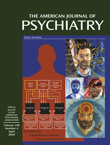Negative Symptoms in Temporal Lobe Epilepsy
Abstract
OBJECTIVE: This study examined the frequency of negative and positive symptoms in nonpsychotic patients with temporal lobe epilepsy and the relationship of negative and positive symptoms to cognition, quantitative magnetic resonance imaging (MRI) volumetrics, and depression. METHOD: Eighty-four patients with temporal lobe epilepsy and 74 healthy comparison subjects were evaluated for negative and positive symptoms and underwent comprehensive neuropsychological evaluation, quantitative MRI volumetrics, and assessment of mood state and depression. RESULTS: Negative symptoms were significantly more prevalent in the patients with temporal lobe epilepsy (31%) than in the comparison subjects (8%). There was no difference between groups in the rate of positive symptoms. Although the epilepsy patients as a group exhibited generalized cognitive impairment relative to the comparison subjects, the epilepsy patients with negative symptoms performed significantly worse than patients without negative symptoms and comparison subjects across measures of nonverbal intelligence, visuoperception, speeded visuomotor processing, and memory. The epilepsy patients with negative symptoms exhibited significantly greater diffuse atrophy than the healthy comparison subjects and higher CSF volumes than the epilepsy patients without negative symptoms. The epilepsy patients with and without negative symptoms had statistically equivalent Beck Depression Inventory scores and lifetime history of mood disorders, including major depression. CONCLUSIONS: Negative but not positive symptoms were more prevalent in temporal lobe epilepsy patients than in healthy comparison subjects. Negative symptoms were independent of current and past depression and were associated with neuropsychological deficits exceeding the general cognitive morbidity associated with temporal lobe epilepsy and with quantitative MRI indices suggesting greater cerebral atrophy.



